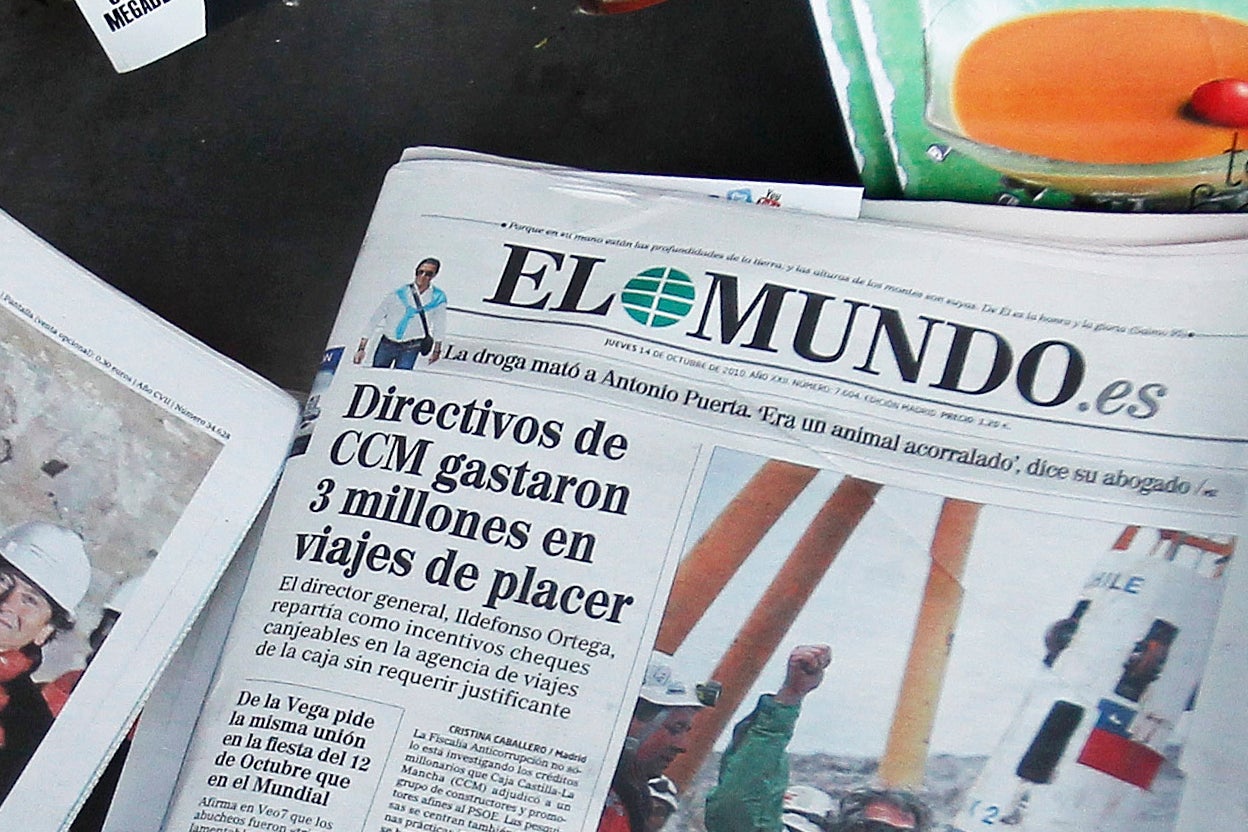Russia's Foreign Ministry says Spanish reporter denied a visa was invited to stay
Russia’s Foreign Ministry says it issued the necessary documents for a Spanish journalist to stay in the country although the reporter claims he was forced to leave because his visa was not renewed

Russia's Foreign Ministry says it issued the necessary documents for a Spanish journalist to stay in the country although the reporter claims he was forced to leave because his visa was not renewed.
Xavier Colas of the newspaper El Mundo is the latest foreign journalist to have left Russia after visas were not continued. The cases come amid a crackdown on media that has intensified since Russia sent troops into Ukraine in February 2022.
Colas said he was forced to leave Russia on Wednesday, a day after authorities refused to renew the visa.
In a statement to The Associated Press on Friday, the Foreign Ministry said Colas collected his official accreditation and “a package of documents to extend his stay in our country.” Although the ministry issues invitations to remain in the country, the actual visa is issued by the Interior Ministry.
Colas told the AP on Saturday that the latter ministry “told me that I had been banned for at least five years. They wouldn't give me any explanation.”
He said his visa was expiring at the end of the next day and the ministry told him “leave tomorrow or you will have problems.”
The Foreign Ministry said Colas could have called the ministry for clarification “but chose to urgently leave Russia.”
But Colas complained that the invitation was issued only a day before his visa expired and “by the time I was informed of the refusal the foreign ministry was closed.”
According to El Mundo, Colas had been visited by police officers who warned him to stop covering demonstrations by women whose loved ones serve in the Russian military, one of the few visible signs of public discontent with the war.
Colás had reported from Russia for 12 years, as well as from Ukraine. He recently published a book, “Putinistán,” about President Vladimir Putin ’s government.
Independent media and journalists in Russia have come under increasing pressure from the government in recent years. Multiple Russian news outlets have been blocked online, labeled as “foreign agents” or outlawed as “undesirable” organizations.
Here are some other cases in recent years:
— In August 2021, the Foreign Ministry refused to renew BBC reporter Sarah Rainsford's visa amid tensions with the U.K. Several months later, the Russian authorities expelled Tom Vennink of the Dutch newspaper De Volkskrant, citing “administrative violations.”
— In February 2022, just three weeks before the fighting began in Ukraine, Russian authorities shut down the Moscow office of German public broadcaster Deutsche Welle and withdrew its staff’s accreditations.
— In May 2022, when the fighting in Ukraine was in full swing, Russian authorities closed the bureau of Canadian broadcaster CBC and stripped its journalists of visas and credentials.
— In March 2023, Wall Street Journal reporter Evan Gershkovich was arrested on a reporting trip to Russia and later charged with espionage — allegations he and his employer vehemently denied, while the U.S. government declared him to be wrongfully detained.
— In August 2023, Russian authorities refused to renew the visa of Dutch journalist Eva Hartog of Politico Europe and the news magazine De Groene Amsterdammer.
Subscribe to Independent Premium to bookmark this article
Want to bookmark your favourite articles and stories to read or reference later? Start your Independent Premium subscription today.
